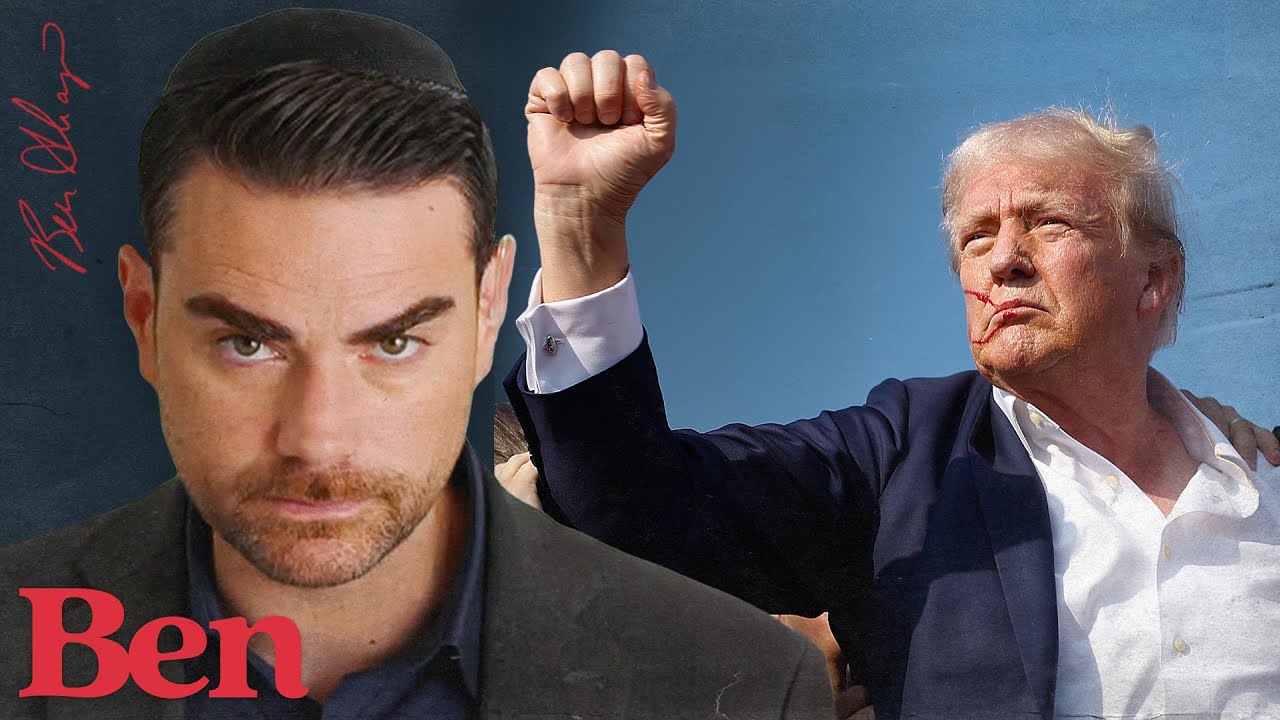'STOP ESCALATING THE THREAT ENVIRONMENT': Lawmakers urge Harris to halt anti-Trump rhetoric
Summary
TLDRThe transcript details a contentious discussion among speakers about the dangerous rhetoric surrounding former President Donald Trump and its implications for political violence. Concerns are raised about threats to Trump, with comparisons made to how Democrats would react if similar threats were directed at their leaders. Kamala Harris responds to accusations against Trump by emphasizing the need for factual discourse and highlighting warnings from military officials regarding his unfitness for office. Overall, the conversation reflects deep anxieties about escalating political tensions and the potential for violence in the current political landscape.
Takeaways
- 😀 Speaker Johnson and Minority Leader express concern over rhetoric that could endanger former President Trump.
- 😀 They emphasize the importance of ensuring Trump's safety amid ongoing threats.
- 😀 The discussion highlights a double standard in media reactions to threats against Trump versus those against Democratic leaders.
- 😀 The speakers draw parallels between past political rhetoric aimed at figures like George W. Bush and current rhetoric aimed at Trump.
- 😀 They argue that the language used against Trump, labeling him as a dictator and fascist, is not only repetitive but also dangerous.
- 😀 Kamala Harris is called upon to respond to concerns about political violence, reiterating the need to speak out against it.
- 😀 Harris claims that Trump poses a significant threat to democracy and is unfit to serve, citing opinions from former military leaders.
- 😀 The conversation touches on the strategic messaging of Democrats, particularly in relation to their political records.
- 😀 The group critiques Harris's rhetorical approach, suggesting she uses others' statements to indirectly label Trump as a threat.
- 😀 The overall tone reflects a deep partisan divide and concerns over the implications of political violence in contemporary discourse.
Q & A
What concern do Speaker Johnson and Senator Minority Leader express regarding Vice President Harris's rhetoric?
-They suggest that her rhetoric could endanger Donald Trump's safety, indicating that such language may incite violence against him.
How do the commentators view the media's response to threats against political figures?
-They argue that the media would react much more strongly if similar threats were made against Democratic figures like Kamala Harris or Joe Biden.
What historical context do the speakers provide about political labeling?
-They reference past instances where leaders like George W. Bush and Donald Trump were labeled as 'Hitler' or 'fascist', suggesting that such accusations are not new but have been a recurring tactic in political discourse.
What was Vice President Harris's main argument regarding political violence?
-Harris emphasized the need to speak out against political violence and suggested that the American people deserve to hear the truth about the threats posed by Trump.
What strategy do the commentators suggest Harris is using in her responses?
-They propose that she is using a strategy to distance herself from her administration's record by citing authoritative figures, like John Kelly, to substantiate her claims against Trump.
What do the speakers imply about the effectiveness of Harris's closing argument?
-They imply that her closing argument lacks substance and relies on fear rather than addressing tangible achievements or failures of the current administration.
How do the speakers characterize the current political environment regarding threats?
-They characterize it as having a high level of tension and rhetoric, which they believe is dangerous and potentially inflammatory.
What do the speakers suggest is the underlying reason for the focus on Trump as a threat?
-They suggest that the focus is a tactical decision to rally support as elections approach, using the narrative of danger to appeal to voters.
What do the commentators indicate about the frequency of threats against Trump compared to other politicians?
-They note that Trump has faced multiple assassination attempts, and yet the media and political responses are less intense than they would be for Democrats facing similar threats.
What criticism do the commentators offer about the portrayal of Trump in the media?
-They criticize the media's portrayal of Trump as a dictator and a fascist, arguing that it is an exaggerated and repeated narrative designed to undermine his political standing.
Outlines

Dieser Bereich ist nur für Premium-Benutzer verfügbar. Bitte führen Sie ein Upgrade durch, um auf diesen Abschnitt zuzugreifen.
Upgrade durchführenMindmap

Dieser Bereich ist nur für Premium-Benutzer verfügbar. Bitte führen Sie ein Upgrade durch, um auf diesen Abschnitt zuzugreifen.
Upgrade durchführenKeywords

Dieser Bereich ist nur für Premium-Benutzer verfügbar. Bitte führen Sie ein Upgrade durch, um auf diesen Abschnitt zuzugreifen.
Upgrade durchführenHighlights

Dieser Bereich ist nur für Premium-Benutzer verfügbar. Bitte führen Sie ein Upgrade durch, um auf diesen Abschnitt zuzugreifen.
Upgrade durchführenTranscripts

Dieser Bereich ist nur für Premium-Benutzer verfügbar. Bitte führen Sie ein Upgrade durch, um auf diesen Abschnitt zuzugreifen.
Upgrade durchführenWeitere ähnliche Videos ansehen

Timeline on how the Trump assassination attempt unfolded

Pete Buttigieg weighs in on Harris' defiant debut in first Fox interview

Trump's 'violent and ugly' rhetoric turning away female voters: former Rep. Comstock

TRUMP SHOT, SURVIVES ASSASSINATION ATTEMPT

¿Por qué el apoyo a Trump aumenta a pesar de las acusaciones? Esto opinan demócratas y republicanos

Biden can now order Trump assassinated, legally
5.0 / 5 (0 votes)
